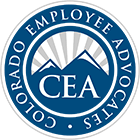Learning about ongoing fraud in your workplace can be quite disturbing. This is especially true if you accidentally stumble upon this information and realize that you were not supposed to know about it.
Your first instinct may be to report the fraud, but you could understandably be nervous about becoming a whistleblower. The thought of retaliation from your employer or confusion over exactly how to report the fraud can stop you from taking action.
The amended Colorado False Claims Act
However, recent changes to Colorado’s whistleblower laws have increased protections and powers for whistleblowers. Colorado’s amended False Claims Act (“CFCA”) went into effect earlier this year.
A qui tam, or whistleblower, action involves individuals who come forward to report fraud in the form of misappropriation of government funds. The former version of the CFCA only allowed these types of claims to be brought in Medicaid fraud cases.
The amended CFCA now allows whistleblower claims for fraud to be brought against any local or state contract. It also allows for a whistleblower to receive compensation of up to 30% of the amount the government successfully recovers.
What if your employer retaliates?
Furthermore, if your employer does retaliate against you for reporting the fraud, you may receive additional compensation.
Retaliation comes in many forms and is more than simply firing you. Reducing your pay or hours, threatening or intimidating you or filing a lawsuit against you are just a few examples of retaliation. You also cannot be demoted, suspended or discriminated against for being a whistleblower.
Advocating for your rights as a whistleblower
If you have knowledge of fraud involving government funds, the idea of speaking out can be extremely frightening and overwhelming. You may worry about the potential repercussions, especially after hearing whistleblower stories in the news in recent years.
Before acting, it can be helpful to talk with an employment attorney experienced with whistleblower actions. You can learn about the protections available to you as a whistleblower and receive guidance on the whistleblower process.

